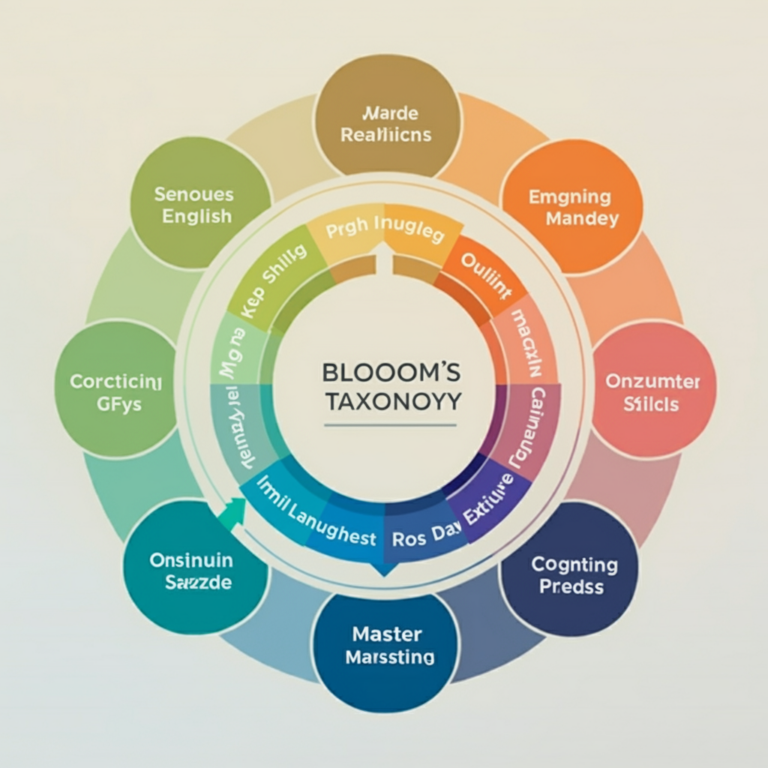The Phenomenonal Field and Education
Understanding Education and Human Behavior Through the Phenomenal Field: A Child’s Guide
Imagine you’re wearing special glasses that only you can see through. These glasses show you your own unique world – everything you see, hear, feel, think, and remember. This world, as seen through your special glasses, is called your phenomenal field. It’s like your own personal bubble of experience.
Now, let’s say you’re in a classroom. Your phenomenal field includes the teacher’s voice, the words on the chalkboard, the feeling of your chair beneath you, your thoughts about the lesson, and even your memories of past classes. But your classmate sitting next to you? They have their own unique phenomenal field, shaped by their own experiences and perceptions.
Why is the phenomenal field important for understanding education and human behavior?
Well, think about it. Everything you learn and do is filtered through your phenomenal field. If you’re feeling bored or distracted in class, it’s because those feelings are part of your phenomenal field at that moment. If you find a particular subject easy to understand, it’s because it connects well with the things already in your phenomenal field – your existing knowledge, interests, and experiences.
Let’s break it down further:
1. Learning is Personal:
Imagine you’re trying to learn how to ride a bike. Your phenomenal field includes your fear of falling, the feeling of the handlebars in your hands, the sight of the pedals, and the encouragement you hear from your parents. No one else can experience those things exactly the way you do. That’s why learning is a unique and personal journey for everyone.
2. Behavior Makes Sense in the Phenomenal Field:
Let’s say a child is acting out in class. Maybe they’re shouting or throwing things. From the outside, it might seem like they’re just being naughty. But if we look at their phenomenal field, we might see that they’re feeling overwhelmed or frustrated. Maybe they’re struggling to understand the lesson, or they’re feeling bullied by their classmates. Their behavior, which seems illogical from the outside, suddenly makes sense when we understand their unique experience.
3. Education Should Connect with the Phenomenal Field:
If we want to help children learn and grow, we need to understand their phenomenal fields. We need to create learning experiences that are relevant to their interests and connect with their existing knowledge. We need to pay attention to their feelings and help them develop strategies for coping with challenges.
Think of it like this:
Imagine a gardener trying to grow a plant. The gardener needs to understand the plant’s needs – the right amount of sunlight, water, and nutrients. Similarly, educators need to understand the needs of each individual learner – the things that will help them thrive in their own unique phenomenal field.
Here are some examples of how educators can use the phenomenal field to improve learning:
- Building relationships with students: Getting to know students as individuals and understanding their interests, strengths, and challenges.
- Creating a positive and supportive learning environment: Where students feel safe and respected.
- Using a variety of teaching methods: To cater to different learning styles and preferences.
- Providing opportunities for students to share their experiences and perspectives: Through discussions, projects, and presentations.
- Helping students develop self-awareness and emotional regulation skills: So they can better manage their own phenomenal fields.
The phenomenal field is a powerful tool for understanding education and human behavior. By recognizing that each individual has a unique perspective and experience, we can create learning environments that are more engaging, effective, and meaningful for everyone.
Let’s explore some more complex ideas related to the phenomenal field:
1. The Self and the Phenomenal Field:
Your sense of self – who you are, what you believe, and what you value – is also part of your phenomenal field. It’s like the central point of your personal bubble of experience. As you learn and grow, your phenomenal field expands, and your sense of self develops and changes.
2. The Phenomenal Field and Social Interactions:
Your phenomenal field isn’t just about your own internal experiences. It also includes your interactions with other people. When you talk to someone, you’re not just exchanging words. You’re also sharing parts of your phenomenal field – your thoughts, feelings, and perspectives. And their phenomenal field is influencing yours in return.
3. The Phenomenal Field and Culture:
The culture you grow up in – the values, beliefs, and customs of your society – also shapes your phenomenal field. For example, if you grow up in a culture that values competition, you might be more likely to see the world in terms of winners and losers. If you grow up in a culture that values cooperation, you might be more likely to see the world in terms of collaboration and shared goals.
4. The Phenomenal Field and Mental Health:
The phenomenal field can also be a useful tool for understanding mental health challenges. For example, someone experiencing anxiety might have a phenomenal field that is filled with worries and fears. Someone experiencing depression might have a phenomenal field that feels empty and hopeless. By understanding the individual’s phenomenal field, therapists can help them develop strategies for coping with their challenges and creating a more positive and fulfilling experience.
In Conclusion:
The phenomenal field is a complex and fascinating concept with far-reaching implications for understanding education, human behavior, and even mental health. By recognizing the importance of individual experience, we can create a more compassionate, equitable, and effective world for everyone.
Further Exploration:
If you’re interested in learning more about the phenomenal field, here are some resources you might find helpful:
- Books:
- “A Way of Being” by Carl Rogers
- “Personality and Psychotherapy” by Carl Rogers
- “Client-Centered Therapy” by Carl Rogers
- Articles:
- “The Phenomenal Field” by Carl Rogers
- “The Concept of the Phenomenal Field” by Donald Snygg and Arthur W. Combs
- Websites:
- The Carl Rogers Center for Studies of the Person
- The Association for Humanistic Psychology
By continuing to explore the phenomenal field, we can deepen our understanding of ourselves, others, and the world around us.





